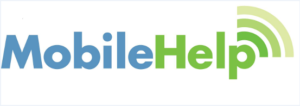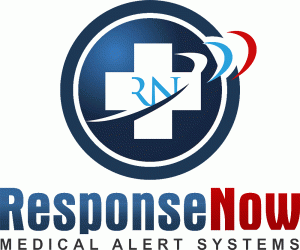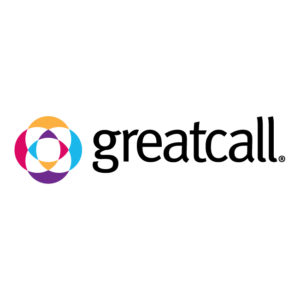Medical alert systems are made to alert emergency response services when you have a medical emergency in your home.
As loved ones get older and their health begins to fail, it can be difficult to face the realization that you can’t always be there to help when it’s needed.
A medical alert system can give you peace of mind, and give your loved one a lifeline if they have a fall or a medical emergency and can’t reach help.
Since these systems are worn on your body, it’s far easier to reach help compared to a phone–which might be a long ways from a fall in the shower, for example.
There are a lot of possible options for medical alert systems; we’ve done the research and ranked the ten best.
1. Medical Guardian

Click here for more information
Medical Guardian is a medical alert system that goes above and beyond by bolstering the water resistance of their wearable button, integrating their devices with wifi and cellular communication at the same time, including automatic fall detection, and on top of all of that, providing a 1300 foot communication range between the wearable help button and the base unit.
This makes it great for seniors who like to get outside and work in the yard, and who stay fairly mobile in and around the home.
2. MobileHelp

Click here for more information
MobileHelp is on the cutting edge of medical alert and monitoring systems for seniors. Their MobileVitals Duo system includes bluetooth-based monitoring of blood pressure, weight, pulse, and blood oxygenation, as well as medication reminders.
It can track your activity levels, too, providing caregivers with information on how well you are maintaining your independence.
If you’re the caregiver for a senior and you want as much health data as possible, MobileHelp is definitely the best option. For seniors trying to set up a medical alert system on their own, the complexity might be overwhelming, though.
3. QMedic

Click here for more information
QMedic uses advanced wearable technology to track your daily activity habits, your sleep, and can automatically alert a designated caregiver if you start showing signs of disruptions in your sleep and activity habits.
This puts it above many other medical alert systems, because by doing this, it might be able to prevent a medical problem before it happens.
It’s also got an excellent communication range of 1000 feet, so it’s good for yard work and time spent outside of the home too.
4. Bay Alarm Medical

Click here for more information
Bay Alarm Medical is widely lauded for its versatility, reliability, and excellent customer service. They offer GPS tracking, making it a good option for seniors who still get out of the house a good bit.
Their devices also boast automatic fall detection capabilities, and this combined with the excellent reliability and mobile network abilities make it the best option for the highly active senior who want a safety net in case something happens inside or outside the home.
5. ResponseNow

Click here for more information
ResponseNow has one of the best mobile options on the market. The cellular-network connected mobile device offers 30 days of battery life on a single charge, while the GPS-enabled version has a still-respectable 5 day battery life (mostly due to the extra charge taken by the GPS tracking).
They are pendant based, which does mean you have to wear them around your neck. There is automatic fall detection on the GPS-enabled Belle+ model, but not the basic version with the longer battery life.
6. Lifestation

Click here for more information
LifeStation offers medical alert services in 240 languages, so it’s hard to find a senior who won’t be comfortable using it. It’s also very easy to get a refund, making it a good choice for seniors who are hard of hearing, in case they find they can’t hear the unit from the next room over.
If you find that you can’t hear the voice system very well in your home, it’s not hard to get your money back. GPS tracking and fall detection are both available as a low-cost monthly add-on.
7. One Call Alert

Click here for more information
One Call Alert offers both mobile and landline-based options for medical alerts, and it has automatic fall detection available on all of its models.
The range of the wearable help button with the home base unit is a respectable 600 feet–not the best on the market, but still solid for seniors who want an extra layer of security while out in the garage, mowing the lawn, or working in the garden.
8. Life Alert

Click here for more information
Life Alert is a long-standing brand in medical alert systems. They are best known for their home-based landline medical alert system, but the company has branched out into GPS-based devices for medical alerts and tracking outside of the home.
Life Alert does not currently offer fall detection, but does have the perk of an impressive 10-year lifetime on the battery in the home units.
9. GreatCall

Click here for more information
GreatCall is a medical alert system that only offers mobile-based medical alert devices that use cellular networks to communicate with emergency service.
It offers fall detection and offers emergency services communications in over 100 languages, making it a good choice for seniors whose first language isn’t English.
The downside is that the battery life of the mobile units is only about 24 hours, which is less than stellar–you have to charge the device every single day.
10. Alert1

Click here for more information
Alert1 offers a traditional home-based system that uses a wearable pendant to summon help, and the company also offers a mobile system that can detect falls even outside of the home.
However, the flagship mobile unit is also designed to be worn around the neck, and it’s fairly bulky. This could prove to be a problem, as it may be inconvenient to wear on a regular basis.
Medical alert system benefits
A medical alert system is a wearable device that either connects to emergency services through a home-based unit or directly via a cellular or wifi network.
Medical alert systems can connect you to help immediately. With the push of a button, you can summon emergency services if you have an accident or a medical emergency. Medical alert systems used to be mostly for seniors confined to the home, because traditional systems were tied to base units connected to landline telephone communications.
But with the advent of widespread cellular network coverage, medical alert systems can be taken anywhere. The best services offer waterproof wearable devices that can summon help whether you are in the shower, on a walk, or at the park.
In-home systems have evolved, too–many offer automatic reminders for medication, as well as advanced sensors that track sleep quality, physical activity levels, and even blood pressure.
Many of these systems can synchronize to online or mobile apps to provide you or your caregivers with detailed health information. The range of the best home-based systems have improved markedly, too: with several companies offering ranges of 1000 feet or more, you can use these medical alert systems when you are out in the yard or working in the garage.
There are two primary types: home-based and mobile-based medical alert systems. The choice of a home-based or a mobile-based medical alert system is dependent on a number of factors, including how mobile you are, where you are likely to have a medical emergency, and what type of information your caregivers need.
For seniors who don’t get out of the house much on their own, a mobile-based service doesn’t make a lot of sense. Mobile based units have worse battery life by a long ways, and home-based systems can track things like physical activity and sleep quality with greater ease, given that battery life doesn’t need to be spent on cellular network communication.
For seniors who do get out of the house, a mobile system may still be too much of a hindrance, and it might make sense to go with a home-based system if you’re accompanied by other people or by caregivers while you are outside of the home.
However, if you really want to maintain your independence, a mobile based system is definitely the way to go. If you enjoy walking your dog, taking a stroll around the neighborhood, or visiting the local park, you shouldn’t let fear (on your part or one of your caregivers) of a medical emergency hinder your freedom.
While mobile systems are bulkier and have shorter battery lives, the amount of independence they offer you is far beyond what you can get with a home-based system.
Seniors at risk for falls and medical emergencies can benefit the most from medical alert systems. According to the Centers for Disease Control and Prevention, Americans aged 65 and older are susceptible to many causes of death that can be prevented with timely medical intervention (1).
Heart disease and “unintentional injury” are two of the top ten causes of death for Americans 65 and older, and the category of “unintentional injury” is dominated by accidental falls (2). While falling down is no problem when you are young, the same is not true as you get older.
Because bones become more frail as you age, and because your balance deteriorates, falls tend to be much more serious and cause much greater injuries. Falls, heart attacks, and strokes can be particularly problematic because it’s often not possible to summon help, even when the phone is just in the next room.
Getting a medical alert system can be especially beneficial for seniors who are at greater risk for falls. Since falls often cause permanent disability or death, they are a well-researched and fairly well-understood problem.
Research by Laurence Z. Rubenstein at UCLA School of Medicine examined a range of scientific studies to uncover the most important risk factors for falls among seniors (3).
His review of the scientific research identified the most common risk factors as muscular weakness (also known as frailty), unsteadiness while walking, cognitive decline, and some medications that affect alertness and coordination.
A study of seniors living independently in New England led to additional findings on potential risk factors for falls in senior citizens (4).
Over 300 seniors were enrolled in a study by researchers at Yale University and were followed for one year. During that time, 108 of the seniors fell at least once.
By examining the measurements the researchers took at the study’s outset, the researchers were able to determine what factors increased the risk of falling, and by how much.
This study identified medications–specifically sedatives–as the greatest risk factor for falls.
People on sedatives had twenty-eight times the risk of falling compared to people not taking sedatives. Cognitive impairments and lower leg or foot disabilities also increased the risk of falling by 200-500%.
These studies suggest that seniors who are taking sedative medications like barbiturates and sleep aids, as well as those with cognitive impairment, frailty, and lower leg problems would benefit the most from a medical alert system, because they are at a much greater risk of falling compared to seniors who do not have these risk factors.
That’s in addition to the other risk factors that might justify getting a medical alert system, such as a history of heart disease, previous strokes or heart attacks, or seniors who are disabled or cognitively impaired.
Medical Alert System FAQs
Q: How do medical alert systems work?
A: No matter the brand or the type, all medical alert systems are fundamentally tools to put you in touch with emergency services when you need help.
The specifics differ slightly when it comes to home-based or mobile-based systems. A home-based system is connected to the landlines in your house through a base unit. This base unit communicates wirelessly with the wearable alert button, which can be either a wristwatch or a pendant.
These wearable buttons are made so you can even wear them in the shower. If you have a fall or a medical emergency, you can push the button and be connected to emergency services immediately.
The main disadvantage of a home-based system is that the wearable help button doesn’t work once it’s outside the range of the base unit in your home.
A mobile-based medical alert system is not limited by range; it connects directly to cellular networks to connect you to emergency services, so anywhere you’d have cell service, you can get medical help.
Often, these units also incorporate GPS tracking, so emergency services can be directed to your exact location. Mobile-based medical alert services tend to have a much shorter battery life, and the wearable device is usually bulkier and heavier.
Q: How should you choose a medical alert system?
A: When it comes to making a decision on which medical alert system to buy, there are a few key questions to ask. First, is a mobile-based or home-based system the right choice?
Home systems are a good choice for seniors who don’t get outside the house by themselves anymore, because the battery life on their wearable devices is much longer. Some home-based systems offer perks like activity tracking and sleep monitoring.
For seniors who do like to get outside, a mobile-based system is superior. If you are going with a mobile system, you need to check whether the company partners with cell carriers that have service in your area.
Usually, service through one or two major cell providers like AT&T or T-Mobile is available for each medical alert system.
Finally, do you want a simple, foolproof system, or one that offers more features? Many newer devices can track sleep, activity levels, and even display reminders to take medication. These features can be great for some seniors, but overwhelming for others.
Q: What is automatic fall detection?
A: Previously, medical alert systems always required the user to press the “help” button to summon emergency services.
This had a major and obvious drawback: what if you fell and hit your head, or broke your arm and couldn’t reach the help button?
The solution to that problem was to put a sensor inside the wearable help button that can automatically summon help if it detects a fall.
When you fall, the violent collision with the ground creates a rapid deceleration that the sensor can detect. Many of the best brands offer automatic fall detection, which will summon help when you fall.
All medical alert systems with automatic fall detection have a manual shut-off feature to cancel an automatic fall, in case the device goes off accidentally (for example, if you drop it).
Given the clear benefits of fall detection, it should be a standard feature on any medical alert system you’re considering.
Q: Who should wear a medical alert system?
A: While many seniors can benefit from a medical alert system, those who benefit the most are seniors who are at risk of medical emergencies like falls, a heart attack, or a stroke.
A medical alert system is especially helpful when there is a chance you can’t reach a normal telephone if you have an accident or an emergency.
Falls are a classic example of this, but frailty, disability, or being confined to a wheelchair are all additional reasons why someone might not be able to reach help in time, if at all.
A medical alert system can also give peace of mind to your loved ones, even if you are healthy and independent. It can be hard for caregivers to give seniors autonomy when they are worried about their well-being, so getting a medical alert system can be a good way to preserve your independence without giving your loved ones something to worry about.
Q: How long does it take to get help from a medical alert system?
A: According to independent testing, most medical alert systems will connect you to an operator within a minute. The quickest responses can be 20 seconds or less.
Once you are connected, the operator will ask you if you are okay, and if you need help, they will relay your information to emergency responders. From here, the response time varies depending on how close you are to an ambulance or hospital.
Q: Are medical alert systems waterproof?
A: All the best wearable help buttons from top medical alert systems are waterproof and can be worn in the shower. Indeed, they should be worn in the shower, because it’s a common location for falls and accidents.
Falls are so common that even simple interventions such as having grab railings installed are known to reduce the risk of injury from falls, providing further evidence that medical alert systems should be worn in the shower (5).
Q: Are medical alert systems available for people who don’t speak English?
A: Many medical alert systems have arrangements with their call managers to have multilingual assistance available.
Some of the best providers have a variety of translators who speak over 100 languages, making it easy to find a medical alert system that can cater to the needs of many different seniors from many different backgrounds.
Recap
A medical alert system is an easy and painless way to get yourself or someone you love an extra safety net for independent living.
The biggest decision to make is whether to go with a home-based system or a mobile system. This decision is going to be dictated by how independent you are and how often you get out of the home by yourself. If you leave the home infrequently and only in the care of others, you’re a good candidate for a home-based system.
However, if you are still fairly independent and like to get outside the house or if you travel frequently, a mobile medical alert system is definitely the right choice.
Seniors who are at risk for heart disease, falls, and other medical emergencies and seniors who live alone are especially good candidates for getting medical alert systems.
Given the peace of mind that they can grant to you or your caregivers, a medical alert system is well worth the investment for many seniors.
https://bodynutrition.org/medical-alert-systems/ http://bodynutritionorg.tumblr.com/post/173253392384
No comments:
Post a Comment